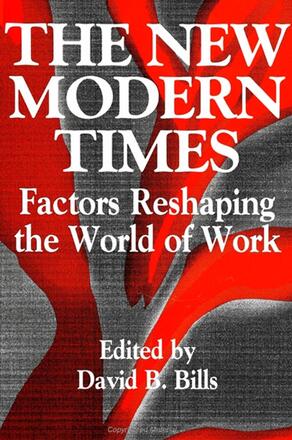
The New Modern Times
Factors Reshaping the World of Work
Alternative formats available from:
Description
The New Modern Times assesses historical, contemporary, and projected trends in the American world of work. The contributors represent a range of disciplines — sociology, history, education, economics, women's studies, and planning— yet all share the perspective that an understanding of the workplace is basic to an understanding of where our society has been, where it is now, and where it is going.
The book focuses on many of the broad causes and consequences of trends in the institutional, demographic, and technological spheres of American society that are continuing to transform both our working and non-working lives. The authors balance careful empirical accounts with a willingness to look ahead to future transformations of the workplace and to draw out the current policy implications of their analyses.
A strong interdisciplinary approach addresses issues such as changing skill levels, the social consequences of new technologies, the emerging economic role of women, and fundamental changes in the terms of employment. In doing so, the book offers new directions for research and new ways to think about some of the most basic processes that continue to transform the American landscape.
David B. Bills is Associate Professor of Sociology of Education and Chair of the Division of Planning, Policy, and Leadership Studies at The University of Iowa.
Reviews
"This book presents an extended and thoughtful examination of work in the U. S. after the turn of the century. It is the state of the art in the sociology of work. " — Richard H. Hall, State University of New York at Albany